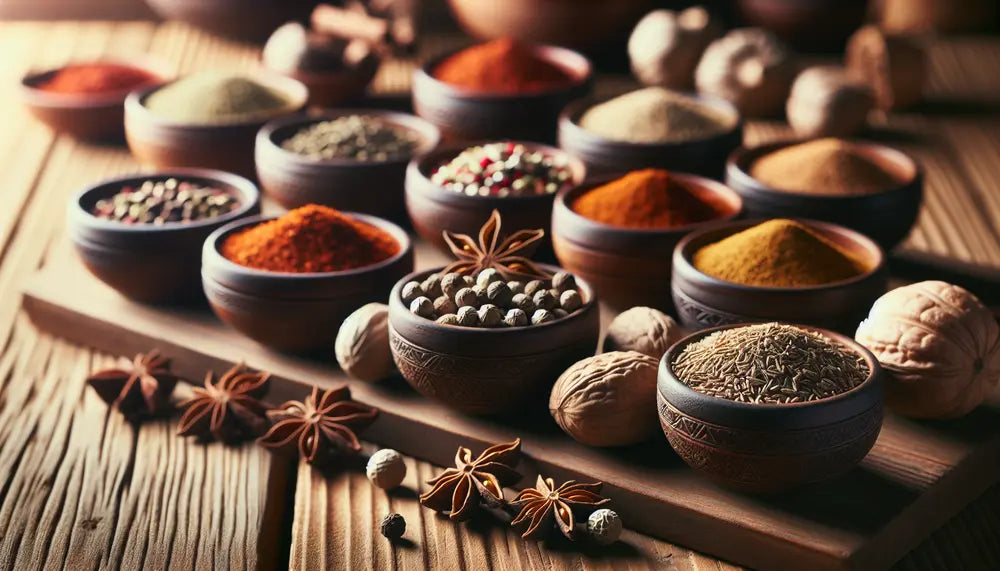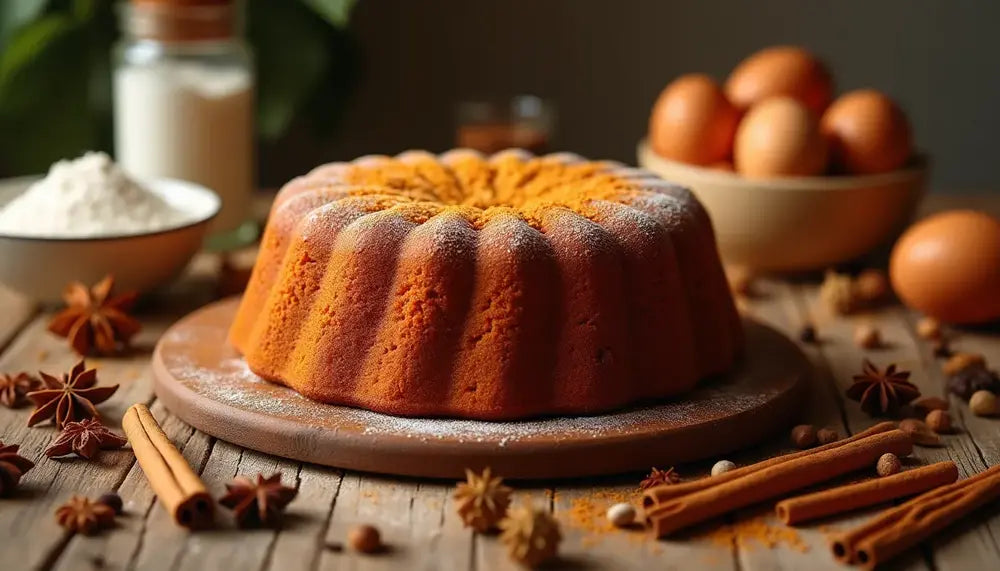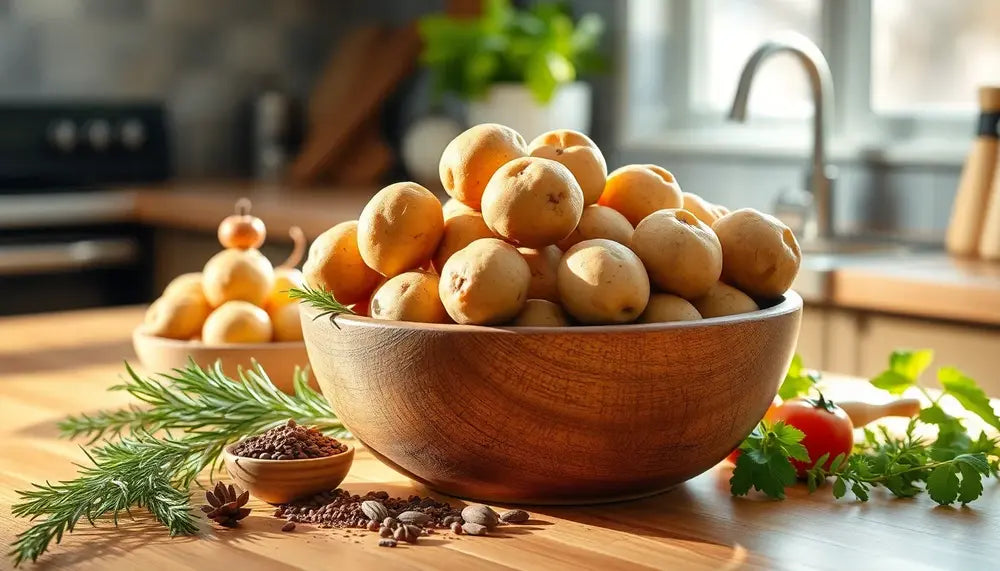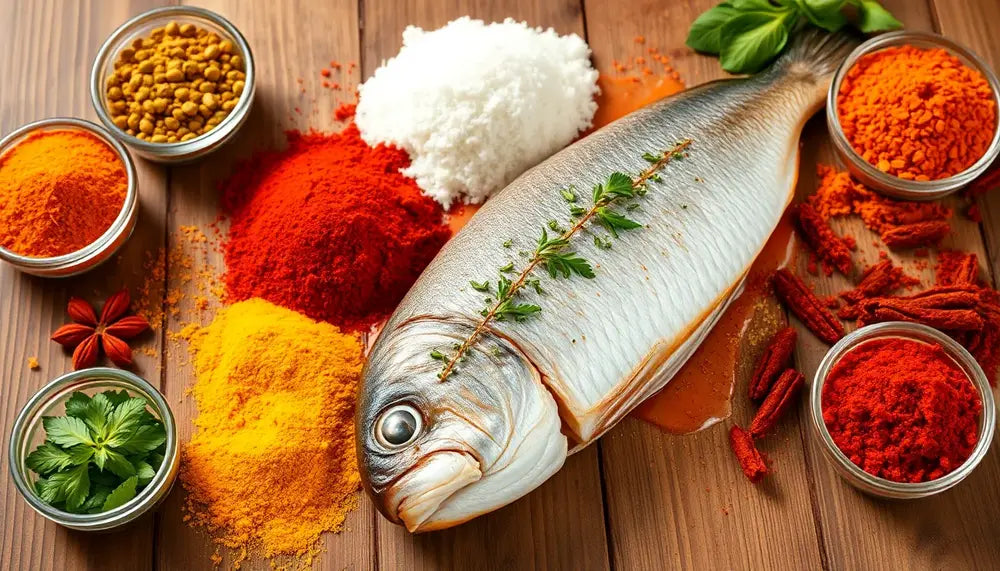Discover the variety of spices with N: An overview
The world of spices with the letter N offers an amazing variety of flavors and possible uses. The spectrum ranges from the intense clove to the subtle taste of the nigella seed. Each of these spices brings its own special properties to the kitchen and can be used in both sweet and savory dishes. In this roundup, we'll highlight some of the most notable spices that start with N and how they can enrich your cooking.
Cloves: Aromatic and versatile
Cloves are known for their distinctive aromatic and their versatility in use. These small, nail-shaped buds belong to the myrtle family and are often used in Asian and oriental cuisine. Its flavor comes into its own in both sweet and savory dishes.
The warm, slightly sweet taste is typical of cloves. They are used in the preparation of cakes and compotes as well as in meat dishes and stews. In addition, they are a fundamental ingredient in spice blends such as gingerbread spice and garam masala. The flavor of cloves is so intense that they are usually dosed sparingly.
Cloves are also valued in traditional medicine because they contain eugenol, a substance known for its anti-inflammatory and pain-relieving properties. These make them a popular home remedy for toothaches and digestive problems.
The versatility of cloves extends not only to cooking and medicine, they are also used in the production of perfume and in aromatherapy. Their ability to add a warm, inviting scent to rooms and products is unmatched.
Nutmeg: The exotic spice with deep roots
Nutmeg, known as nutmeg, is a spice often prized in cooking for its rich and warm flavor. It is obtained from the seeds of the evergreen nutmeg tree, which originally comes from Indonesia.
This exotic spice has not only left its mark on the culinary world, but also has deep historical significance. It was once so valuable that wars were fought to gain control of its production and trade routes. The Dutch East India Company, for example, long held a monopoly on the nutmeg trade.
In the kitchen, nutmeg is traditionally used powderier Form is used and gives many dishes, such as bechamel sauce, mashed potatoes or various baked goods, a special touch. However, their use is not limited to savory foods; it is also a popular ingredient in many desserts and drinks, especially during the Christmas season.
But Nutmeg is more than just a condiment. It is valued in folk medicine for its calming properties, which can help relieve digestive problems and promote sleep. Its active ingredients, such as myristicin and elemicin, contribute to the relaxing effect.
The combination of history, cultural significance and diverse uses makes Nutmeg a truly unique spice with deep roots in many traditions worldwide.
Nigella: Small seeds, big taste
Nigella, also known as black cumin, is a spice that offers a wide variety of flavors despite its small seeds. The seeds, characteristically black and slightly triangular in shape, contain a complex blend of flavors often described as a combination of oregano, onion and black pepper.
These aromatic seeds are in the oriental and Indian cuisine very popular. They are used in breads, pastries and even curry mixes, where they contribute a crunchy texture and a nutty flavor. A typical dish that uses nigella seeds is naan bread, where the seeds are often sprinkled on top to provide an additional flavor kick.
In naturopathy, Nigella seeds are often valued for their supposed health-promoting properties. They are said to have anti-inflammatory, antioxidant and even antimicrobial effects. These properties make them an interesting object of study in medical research.
The use of Nigella in the kitchen can be varied:
- Sprinkle over salads for an added crunch.
- Integration into dough mixes for cookies and breads.
- Add to vegetable stir-fries for a savory touch.
The fascination with Nigella lies in its ability to deliver flavor and utility on a large scale despite its small size, making it a valued ingredient in kitchens worldwide.
Clove Pepper: A Spicy Discovery
clove pepper, often known as allspice, combines different flavors such as clove, cinnamon and nutmeg in a single spice. Its name suggests this diversity, as many people recognize it as a mixture of different flavors.
This one small, round Seed is primarily grown in the Caribbean and parts of Latin America. Clove pepper is an essential part of Caribbean and Central American cuisine and is also used in European cuisine, particularly in the preparation of sausages and marinades.
The uses of clove pepper are diverse:
- As an integral part of spice mixtures such as Jamaican jerk seasoning.
- In compotes and fruit preserves to add a deep, warm flavor.
- For flavoring mulled wine and other hot drinks, especially in the cold season.
In the field of natural medicine, clove pepper is valued for its anti-inflammatory properties. The composition eugenol and other essential oils make it a popular remedy here too.
Peppercorns, which seem inconspicuous at first glance, have a fascinating effect. Clove pepper proves how a small spice can have an unexpectedly large and varied impact, both culinary and medicinal. Thanks to its versatility, it is a tasty discovery in every kitchen.
Clove oil: uses and benefits in the kitchen
Clove oil is obtained by distilling the buds, stems and leaves of cloves and is particularly known for its concentrated aroma intensity. This essential oil has a wide range of uses in the kitchen, ranging from flavoring food and drinks to preserving it.
Some of the notable culinary benefits of clove oil include:
- Used as a flavoring in baked goods and desserts, where it gives a warm, spicy note.
- Added to marinades to enhance meat dishes such as roasts or game with a deep, robust flavor.
- Used in the production of liqueurs and herbal teas that benefit from its intense flavor.
In addition to its taste qualities, the ingredients of clove oil also offer preservative properties. That which is abundant in clove oil Eugenol has antioxidant and antimicrobial effects, making it a useful additive in food preservation.
However, the use of clove oil should dosed because his intense concentration can also be overwhelming. A few drops are often enough to enrich a dish without dominating it.
Overall, clove oil combines numerous positive properties that make it a valuable ingredient in the culinary world. Its ability to refine dishes while preserving them makes it an essential tool in every kitchen.
Baking soda as a spice: Unconventional use in recipes
Although Baking soda, also known as sodium bicarbonate, is primarily used as a leavening agent, it also has some interesting uses as spice in the kitchen. This unconventional use can create a surprising effect in a variety of recipes.
Here are some examples of how baking soda can be used in the kitchen:
- Used to neutralize acid in tomato sauces, rounding out the flavor without adding additional sugar.
- As an ingredient in marinades to tenderize the meat. The alkaline nature of baking soda helps break down the protein in meat, making it tender.
- In the preparation of Asian dishes, such as cooking green vegetables to preserve the bright green color while promoting a softer texture.
In addition, baking soda can also cause a chemical reaction that is used in molecular cuisine. The formula for this reaction is:
| NaHCO3 | → | Well+ + HCO3- |
The possible uses of baking soda in the kitchen go far beyond simply raising cake dough. Its diverse properties allow it to improve both the taste and texture of dishes in unusual ways.
Nutritional Value and Health Benefits of Spices Containing N
Spices with the letter N, such as Nutmeg (nutmeg), Nigella (black cumin) and cloves, offer not only a wealth of flavors but also considerable ones health benefits. They contain important nutrients that can help promote good health.
The health benefits of these spices include:
- Nutmeg is rich in antioxidants that can help neutralize free radicals and thus protect against cell damage.
- Nigella contains thymoquinone, a compound known for its anti-inflammatory and antioxidant properties. It is often used in traditional medicine to treat various ailments.
- cloves offer a high concentration of eugenol, which has antiseptic and analgesic properties, making them particularly useful in dental care products.
In addition, these spices' ingredients contribute to improved digestion and can help regulate blood sugar levels. Regular intake in moderate amounts can therefore be part of a balanced diet and contribute to maintaining health.
An overview of the Nutritional values some spices shows:
| spice | Nutrients |
|---|---|
| Nutmeg (nutmeg) | rich in vitamins such as B1, B6, minerals such as magnesium and antioxidants |
| Nigella (black cumin) | contains essential fats, proteins & fiber |
| cloves | high content of manganese, vitamin K and dietary fiber |
So not only can these spices add depth of flavor to dishes, but they can also provide valuable health benefits, making them a valuable addition to any kitchen.
Culinary Inspiration: Recipes with Spices Starting with N
Opening up in the culinary world Spices with N such as Nutmeg, Nigella and Cloves offer exciting possibilities for creating unique and tasty dishes. Here are some inspiring recipe ideas that utilize these spices and delight the palate with international flavors.
- Nutmeg Breakfast Quiche: A rich and savory quiche flavored with a sprinkle of Nutmeg to complement the flavor of eggs and bacon.
- Nigella Seed Naan Bread: A traditional Indian bread that gets an interesting flavor with the addition of crunchy nigella seeds.
- Spiced clove pepper tea: A warming tea for chilly evenings, enriched with clove pepper and honey for a sweet and spicy combination.
- Clove spice cake: A moist cake that has an autumnal note thanks to the aroma of ground cloves and goes perfectly with tea.
These recipes not only show the versatility of spices with N, but also enable a culinary journey through different cultures and tastes. They invite you to experiment with spices and discover new flavor dimensions.
Preparing each of these dishes gives you the opportunity to put the sophisticated flavors of Nutmeg, Nigella, and cloves to good use in the kitchen and take your cooking skills to a new level. Enjoy the creative exploration of these diverse spices!
Conclusion: Why spices with N should not be missing from any kitchen
Conclusion: Why spices with N should not be missing from any kitchen
Spices with the letter N such as Nutmeg, Nigella and cloves are essential ingredients that add an extra layer of flavor and sophisticated aromas to any cuisine. Their versatility in various dishes as well as their health benefits make them an indispensable ingredient for creative and health-conscious cooking.
The integration of these spices not only offers the opportunity to authentically recreate traditional recipes, but also encourages you to develop new recipe ideas and discover personal taste preferences. Whether in sweet baked goods, savory main meals or spicy drinks, they give every dish an incomparable depth.
Additionally, using spices with N represents an excellent opportunity to reap the health benefits of the natural ingredients. From antioxidant properties to anti-inflammatory effects, these spices cover a wide range of health-promoting aspects.
In short, enriching your kitchen with spices that begin with the letter N is a simple and effective way to incorporate flavor, variety and health benefits into your everyday meals. Therefore, these aromatic ingredients should be in every kitchen if you want to take your cooking to a new, exciting level.
Frequently asked questions about spices with the letter N
What spices with the letter N are there?
Some well-known spices that begin with the letter N are cloves, nutmeg (nutmeg), nigella (black cumin), and clove pepper (allspice).
How do you use cloves in the kitchen?
Cloves are used in both sweet and savory dishes. They are ideal for preparing cakes, compotes and stews and are also an important ingredient in spice mixtures such as gingerbread spice and garam masala.
What health benefits does Nutmeg have?
Nutmeg is particularly known for its calming properties, which can help relieve digestive problems and promote sleep. In addition, it is rich in antioxidants that help neutralize free radicals.
How to use Nigella in the kitchen?
Nigella seeds can be sprinkled over salads, incorporated into dough mixes for breads and cookies, or added to stir-fries to add a savory touch. They are also a popular ingredient in bread recipes such as Indian naan bread.
What cultural significance does the spice clove pepper have?
Clove pepper, also known as allspice or allspice, has a significant cultural role in Caribbean cuisine, where it is used in traditional dishes such as jerk chicken. Its unique taste, reminiscent of a mixture of clove, cinnamon and nutmeg, is also popular in other world cuisines.





Share:
Rediscover cauliflower: spices that give the vegetable that certain something
A culinary journey to Spain: Spanish spices